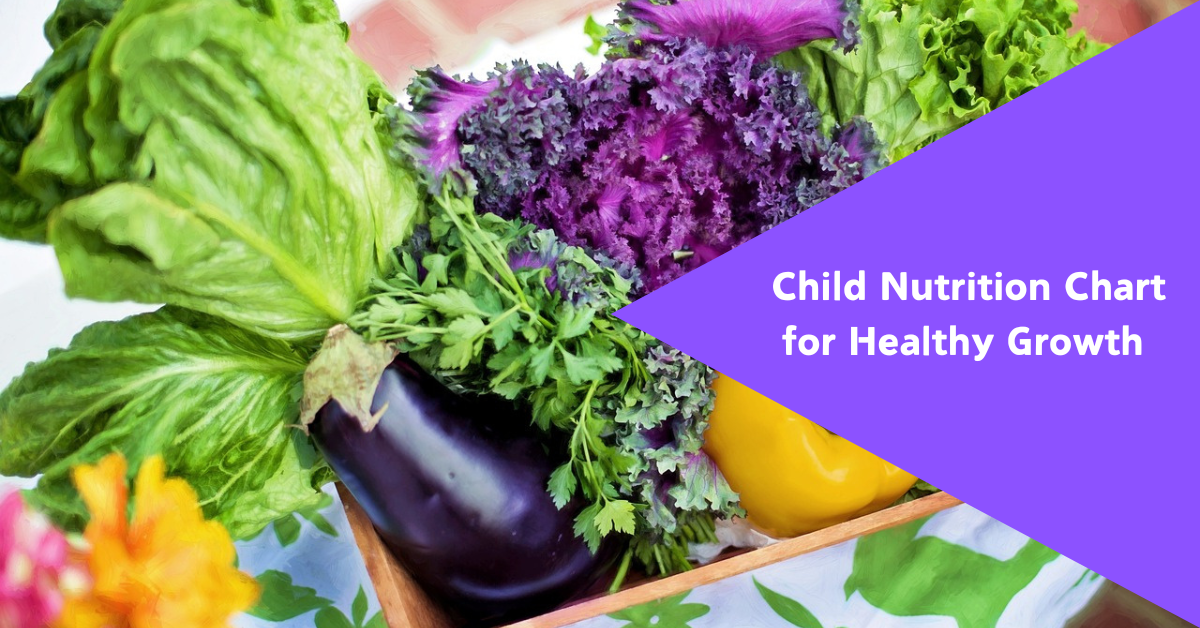Ensuring your child receives proper nutrition is essential for their growth, development and overall well being. A well-balanced diet packed with essential nutrients not only supports their physical health but also boosts cognitive development and energy levels.
Having a child nutrition chart can help parents to monitor the intake of vital nutrients ensuring a balanced and healthy diet. In this article, we will break down the essential nutrients your child needs and provide a helpful nutrition chart for children of different ages.
Before that, please enter this form to get a free growth chart.
Importance of a Child Nutrition Chart
A child nutrition chart acts as a guideline to help parents provide balanced meals for their kids. Growing children have different nutritional needs depending on their age, activity level and health. A well structured nutrition plan helps to:
- Boost immunity
- Strengthen bones and muscles
- Support brain development
- Promote healthy digestion
Let us explore the key nutrients every child needs and how to incorporate them into their daily diet.
Key Nutrients for Children
There are various key nutrients for children. Read on to learn about them:
- Protein
- Importance: Protein is essential for muscle growth, tissue repair and enzyme production.
- Sources: Eggs, chicken, fish, lentils, milk, yogurt, tofu.
- Carbohydrates
- Importance: Carbohydrates provide the energy your child needs to stay active and focused.
- Sources: Whole grains, fruits, vegetables, oats, rice.
- Fats
- Importance: Healthy fats support brain development and are an important energy source.
- Sources: Avocados, olive oil, nuts, seeds, fatty fish like salmon.
- Calcium
- Importance: Calcium strengthens bones and teeth which is crucial during the growing years.
- Sources: Milk, cheese, yogurt, leafy greens, almonds.
- Iron
- Importance: Iron helps transport oxygen through the blood and prevents anemia.
- Sources: Red meat, spinach, beans, fortified cereals.
- Fiber
- Importance: Fiber promotes healthy digestion and prevents constipation.
- Sources: Whole grains, fruits, vegetables, legumes.
- Vitamins (A, C, D)
- Importance: Vitamins support vision, immunity, bone health and overall development.
- Sources:
- Vitamin A: Carrots, sweet potatoes, spinach.
- Vitamin C: Oranges, strawberries, bell peppers.
- Vitamin D: Sunlight, fortified milk, fish.
- Water:
- Importance: Hydration is essential for regulating body temperature, digestion, and circulation.
- Sources: Water, milk, and water-rich fruits like watermelon and oranges.
Tips for Creating Balanced Meals

The tips for creating balanced meals are listed below:
- Focus on variety: Ensure your child’s plate has different colors from vegetables, fruits and grains.
- Include snacks: Offer healthy snacks like fruit slices, nuts, or yogurt to meet their nutritional needs.
- Limit sugar: Try to avoid sugary beverages and processed snacks to reduce unnecessary calories.
- Hydration is key: Encourage your child to drink water throughout the day, especially if they are active.
Conclusion
A well-balanced nutrition chart can help parents track their child’s intake of essential nutrients and ensure they are eating a healthy diet. You can support your child’s growth, development and overall health by including key nutrients like protein, calcium, iron and fiber, and focusing on portion control.
Creating healthy eating habits from a young age sets the foundation for a lifetime of wellness.
Why KidsCur?
To streamline healthcare, you need to take the help of expert medical advisors. Kidscur provides the best services to parents. Contact us to provide your children a good nutrition for overall development.

